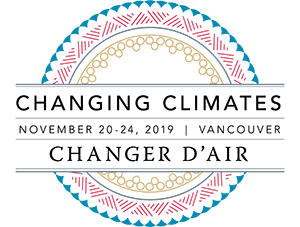Jennifer Jo Thompson
As always, food serves as an interdisciplinary site for investigating a wide range of urgent social issues. This year’s SAFN menu at the annual meeting of the American Anthropological Association is no different – with nine panels focusing on food and health, tradition and identity, and climate change. There’s a full SAFN schedule, if you want it. This year’s conference, jointly organized with the Canadian Anthropology Society, will be in Vancouver from November 20 to November 24.
Wednesday, November 20, features a double panel entitled Syndemic Vulnerability and Entanglements of Food, Nutrition, and Health, with Part One co-sponsored with the Society for Medical Anthropology. These two panels examine the many intersections between food, health, and society—through biocultural, political ecological, and public health/nutritional lenses—and aim to identify “next steps” for advancing anthropological work in this interdisciplinary domain.
On Thursday morning, check out Crafting Cuisine: Changing Cultures of Apprenticeship, Production, and Value, which investigates the “cultural economy of craft” in contemporary foodways. Mid-afternoon, join us for Changing Climate, Changing Agriculture: Anthropological Contributions to the Study of Agriculture and Climate Change, where presenters (including myself) demonstrate the ways that anthropology is uniquely-situated to bring individual and highly-localized eco-social knowledge to global-scale efforts to combat climate change.
Friday, November 22, promises to be a busy day for SAFN members. The day begins with Terroir in Translation: Food and Identity in Changing Climates, co-sponsored with Culture & Agriculture (C&A). This panel re-conceptualizes the notion of terroir as a lens for examining social, political, and environmental change. Midday, join us for the SAFN Business Meeting. We have a few surprises up our sleeve for that meeting, but you’ll have to join us to find out what we’re planning. In the afternoon, panelists on Time for Change: Temporal Struggles in Contemporary Food Systems (co-sponsored with C&A) will argue that temporality has been under-theorized in anthropology by offering papers that demonstrate the importance of this dimension in the anthropology of food.
On Friday evening, we celebrate. We are again partnering with Culture & Agriculture to host a joint Distinguished Speaker and Awards event on Friday night. Our Distinguished Speaker will be Dawn Morrison of the Secwepemc Nation. The title of her talk is “Indigenous Food Economies and Cultures: Key Ingredients for Climate Justice.” Ms. Morrison has a background in horticulture and ethnobotany, and she is the Director of the Working Group on Indigenous Food Sovereignty; the Founder, Chair, and Coordinator of the B.C. Food Systems Networking Group on Indigenous Food Sovereignty; the Co-Founder and Curator of Wild Salmon Caravan; and a Community Self-Development Facilitator within her Secwepemc community. We will also announce the winners of the Christine Wilson Undergraduate and Graduate Paper Prizes and the winner of the Thomas Marchione Award.
Immediately following the Distinguished Speaker and Awards event, SAFN and C&A will host a joint reception at the nearby Pacific Rim Hotel. Join us to connect over hors d’oeuvres and drinks with a beautiful view of the city and waterfront.
But don’t stay up too late on Friday, because you won’t want to miss four more panels on Saturday, November 23. At 8am, you’ll have to choose between two sessions that feature recent anthropological writing. American Chinese Restaurant: Society Culture and Consumption is panel based on an edited volume of the same name in press with Routledge. Hungry for Change: Critical Interventions in Contemporary Food Studies is a roundtable, co-sponsored with C&A, featuring authors of recent critical ethnographies focused on food and agro-environmental justice. Midday will feature Changing Terroir, Tradition, and Identity, a panel with papers examining shifting food cultures in the US, Europe, and Japan. Finally, presenters on Critically Examining the Reproductive Politics of Nourishing Substances, shed light on a largely unexplored area of anthropology through ethnographic papers focused on the social lives of a wide range of “nourishing substances.”
We hope you’ll join us for all these great sessions and events. See you in Vancouver!
